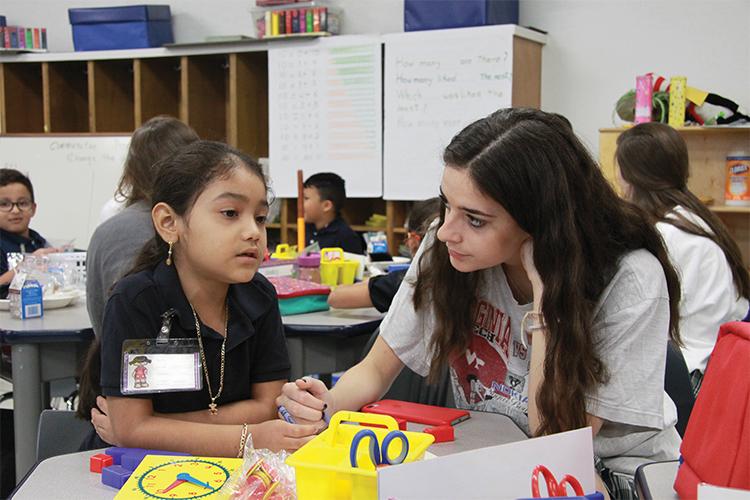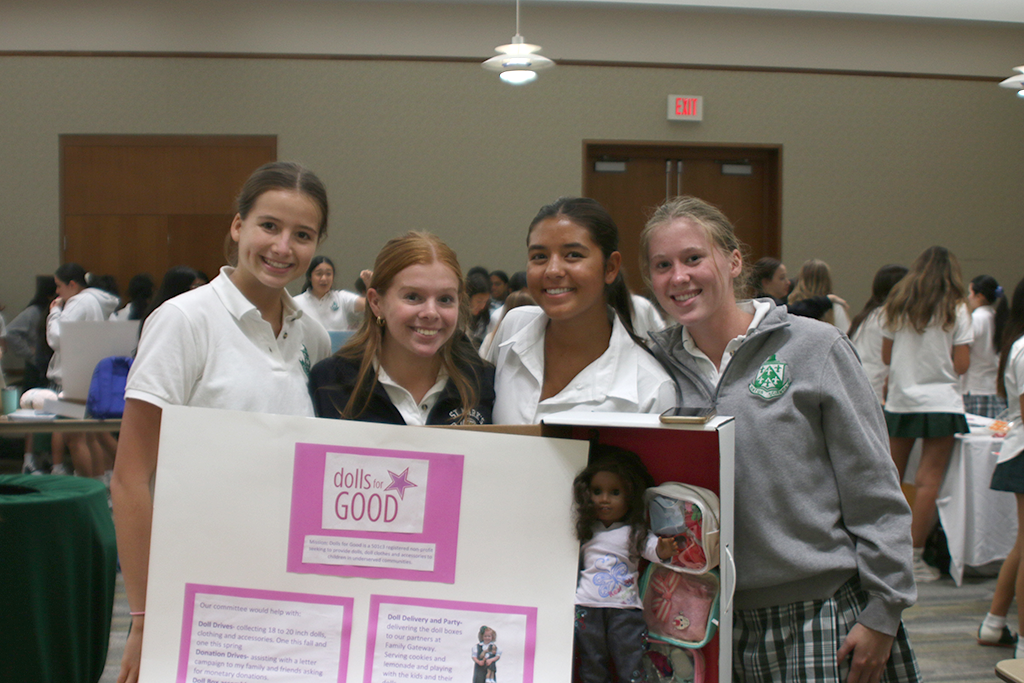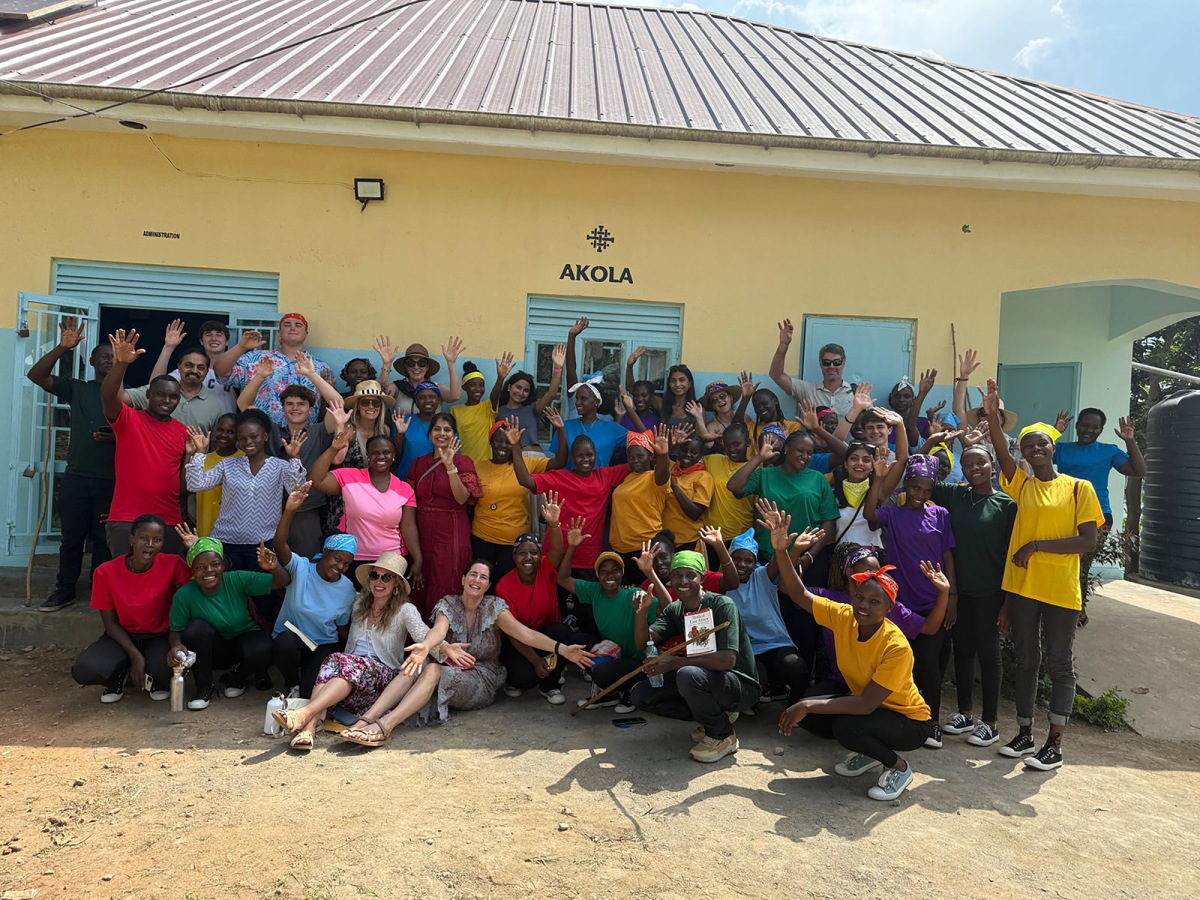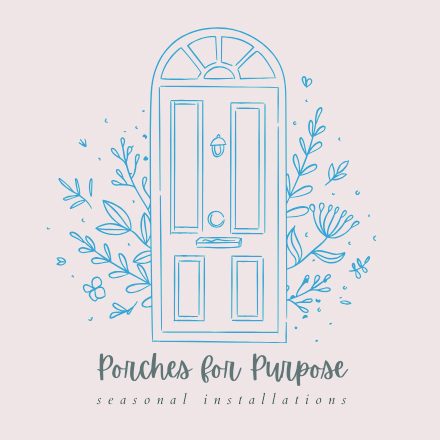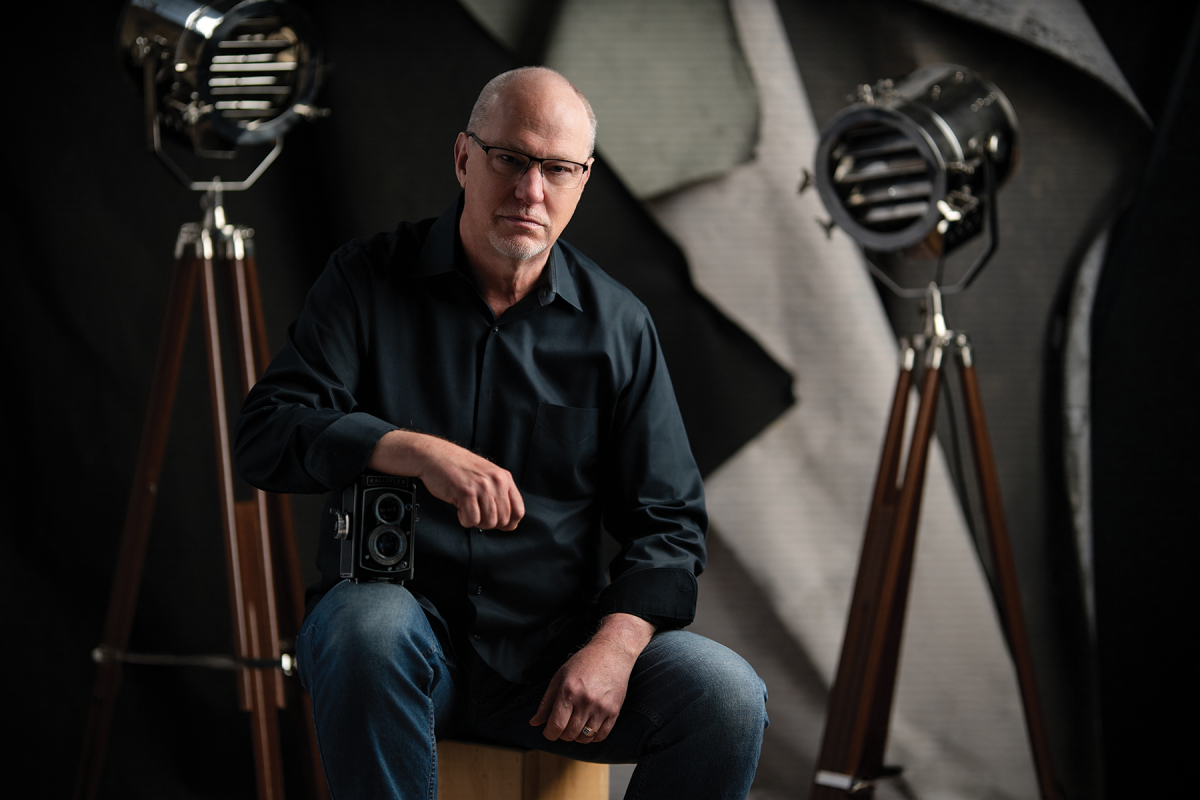//PICTURED ABOVE: Senior Sophia Friguletto interviews a first grader at Nathan Adams Elementary School to gain information about the student to make book for her.
Hockaday students have always been encouraged to take active roles in bettering the Dallas community, required to serve at least 15 hours per school year. This year, however, the service will enter the classroom alongside academics. Beginning last year with Anatomy, Evolution and the Zoo: Intersection of Biology, Design and Community Impact, Hockaday has implemented 12 courses, with at least one course in each discipline, that combine academics and community service. Laura Day, Executive Director of the Institute for Social Impact and Director of the Dr. William B. Dean Service Learning program, helped pioneer these classes and leads their service programs throughout the year. “If you have a curriculum and you’re making an impact in the community, it means so much more,” Day said. “I want to do them really, really well.” The following five courses are among the 12 Social Impact (SI) classes. For information on all SI courses, consult the Hockaday Course Catalog or chat with the teachers of the courses.
Before “Me Too”: Literature as a Protest
Taught by Jennifer McEachern, the course Before “Me Too” involves discussing novels about the empowerment of women. The purpose of this course is to build empathy for the stories of other women while partnering with the Irma Rangel Young Women’s Leadership Academy, a local public all-girls high school. Students also will work with local nonprofit Attitudes and Attire, which aims to help women seeking self- sufficiency by promoting self-esteem and teaching ethics. Senior Sabrina Fearon, who has just begun taking the class, said she looked forward to these opportunities. “I’m really excited for the social impact aspect because not only do I get to discuss with girls from another school, but also I can use my education to make a positive impact on the Dallas community through service,’’ Fearon said.
U.S. Government
U.S. Government has long been a required class for Hockaday sophomores, but the class has been refocused on not only the structure of the government but also empowering students to make a positive change in their communities. Government teacher Kirsten Blevins said the biggest adjustment is changing the traditional three-to-four page research paper into a social impact project. Much of the curriculum has stayed the same, but there is more of a focus on arming students with the knowledge and skills to engage in the community through political action, Blevins said. Student Camille Green said she looks forward to this aspect of the class. “We will analyze current news articles that have to do with local or federal politics and governments,” she said. “ I think that this will give us better insight into what is happening in the communities around us.”
AP Environmental Science
Not limited to core courses, social impact has been implemented in AP courses like AP Environmental Science. This course covers environmental issues and the aspects of life which affect them. Teacher Kirsten Lindsay- Hudak said the class has always involved social impact aspects because it relates to people and how they can be better global citizens. “I really appreciate the partnership with the Institute for Social Impact because Ms. Day gives us avenues to act locally that I didn’t have access to before,” Lindsay-Hudak said. “This is a huge benefit not only on the curriculum level but also on the personal level for the students.”
Race, Class, and Gender in American History
Another new class, Race, Class, and Gender in American History, aims to teach the value of developing empathy, engaging in the community and designing solutions, teacher Hollie Teague said. “By explicitly integrating SI components, students get the opportunity to take steps toward alleviating social problems, rather than just learning about them in a solely academic way,” Teague said.
Chamber Orchestra
In the fine arts department, the Institute for Social Impact will contribute to academics through the Chamber Orchestra class, taught by Charlsie Griffiths. Students will partner with organizations in the area to bring performances, teaching and project-based learning to students outside of Hockaday. “Music is a universal language,” Griffiths said, “and the social impact aspects of this class will provide the students with the opportunity to investigate the many ways and pathways music is used in our community to create positive change.”
Story by Laine Betanzos
Photo by Haylee Salopek


